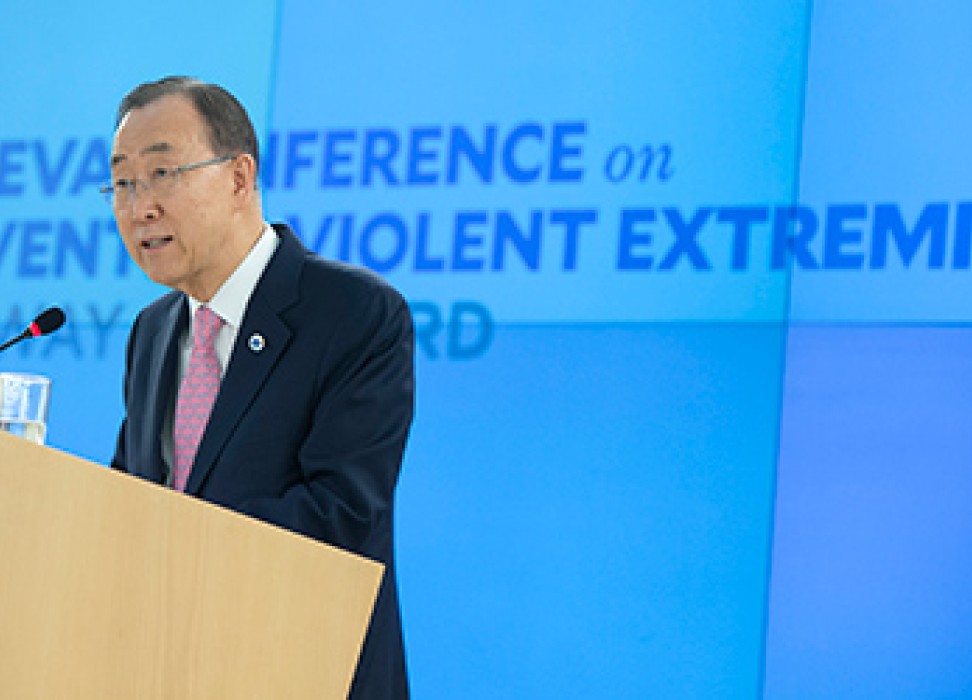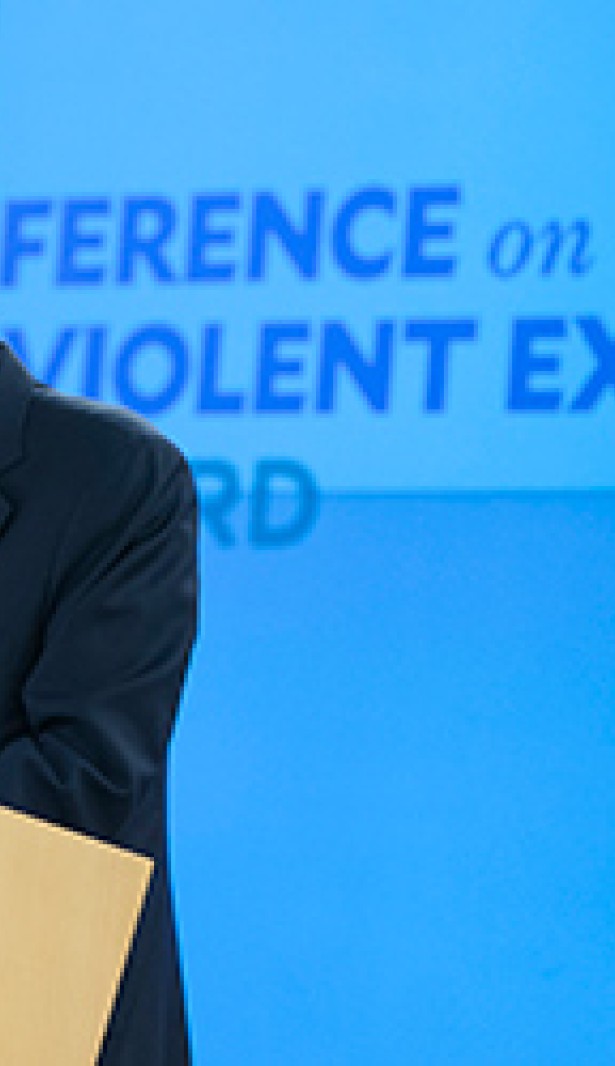Respecting human rights is key to prevent and counter violent extremism
08 April 2016

Violent extremism is a global phenomenon, that is not exclusive to any one region or nationality or religion, said UN Secretary-General Ban Ki-moon. But the goal of violent extremists is the same – to divide to conquer.
“The objective of violent extremists is not necessarily to turn on us – it is for us to turn on each other,” the Secretary-General said. “Their biggest mission is not the action, it is the reaction. The aim is to divide communities. The goal is to let fear rule.”
Ban made his statement during the Geneva Conference on Preventing Violent Extremism. The two-day conference, which was sponsored by the Government of Switzerland and the United Nations, brought together senior experts and representatives from various UN agencies and government officials to discuss how to build on the Secretary-General’s Plan of Action to Prevent Violent Extremism.
The plan puts forward a comprehensive approach for global, regional and national action. Experts noted that there are currently more than 30,000 foreign fighters participating in violent extremist activities, from around 100 countries. The action plan has seven priorities areas including dialogue and conflict prevention, empowering youth and strengthening communications including using the internet and social media.
UN High Commissioner for Human Rights Zeid Ra’ad Al Hussein said the way to combat the issue was not with more violence, but through respecting and promoting human rights.
“To fight violence, we must eventually move beyond violence – lawful or otherwise,” he said. “Working with reason and justice, we can rebuild a fundamental sense of loyalty and belonging throughout our societies. Discrimination should be fought and equality promoted. Equal access for all to economic, social and cultural rights will contribute to immunising individuals and societies from violent extremism.”
To boost the resilience of communities, and their ability to resist violent extremism, there needs to be a move away from a “hard security” approach, Zeid said. Focusing on human rights does this, by promoting resilience in affected communities, where they feel they have space to freely express themselves and fully participate in political life and public affairs.
“Violent extremism is not invincible,” he said. “Conditions conducive to this phenomenon can be corrected. . . We must ensure that there is full accountability for past human rights violations and abuses as well as redress for victims, to heal the wounds that lead to grievances and resentment.”
8 April 2016

